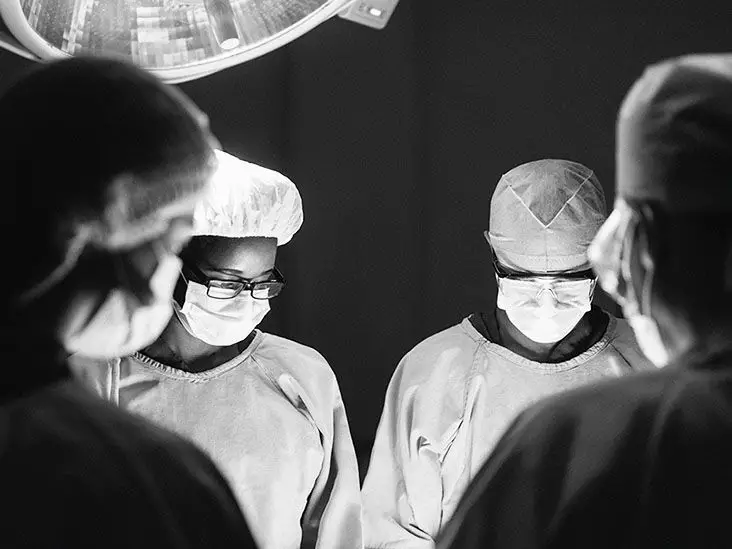Thyroid cancer surgery is more than just a medical procedure; it’s a critical lifeline for thousands of individuals diagnosed with this disease each year. The primary goal of this surgery, also known as thyroidectomy, is the removal of either part or the entirety of the thyroid gland, which is responsible for producing hormones crucial for metabolism, growth, and overall bodily function. Each decision in this process—from the type of surgery to the aftercare—is expertly tailored based on the patient’s specific condition, tumor characteristics, and individual health needs.
The thyroid cancer landscape is not a monolith; it comprises various types of cancer, each with distinctive growth patterns and treatment protocols. From the ultra-curable variants that present slowly to rarer, aggressive forms demanding immediate intervention, the treatment route is meticulously planned by healthcare professionals equipped with the latest medical advancements.
The Procedure: What to Expect
During surgery, patients typically receive general anesthesia to ensure comfort and unconsciousness. The operation commonly requires an incision in the neck, designed to minimize scarring and tailor the approach as per the identified tumor’s location. A lobectomy, which is the removal of one lobe of the thyroid, or a total thyroidectomy, which involves complete gland removal, are standard practices. Lymph nodes may also be extracted if there are signs of cancer spread, further ensuring that the malignant cells do not reclaim territory in the body.
With technological advancements in surgical methods, many patients now have the option of minimally invasive procedures. These not only lead to less noticeable scars but also promise quicker recoveries, thus allowing patients to resume their daily lives with less disruption.
The Diagnostic Journey
An accurate diagnosis typically paves the way for successful treatment. Physicians rely on a holistic approach, starting with a thorough physical examination followed by necessary blood tests to evaluate thyroid function. Imaging studies like ultrasounds and MRI scans help in crafting a detailed picture of the tumor’s size and positioning, while fine needle aspiration biopsies confirm the presence of cancerous cells.
Interestingly, the average age of diagnosis is officially 51. This statistic indicates a growing need for both awareness and education surrounding the disease, which itself may be precipitated by various factors. Risk factors include exposure to radiation, genetic predispositions, and family histories, highlighting the necessity for vigilance, especially in individuals with a background susceptible to thyroid health issues.
Navigating Recovery
Following surgery, the recovery process becomes a focal point in patient care. The immediate post-operative phase is dedicated to rest and pain management, with an emphasis on gentle neck movements to aid healing. Typically, patients may find their activities limited initially but can gradually reintegrate into their normal routines, especially as they come to terms with the physical changes that might arise.
The average timeline for recovery generally spans six weeks, during which patients might be advised to avoid heavy lifting and strenuous activities. The neck incision is designed to heal favorably, often resulting in a fine scar that diminishes in visibility over time. However, some patients might experience temporary voice alterations or other complications that require monitoring. Most of these issues resolve within weeks, though it’s crucial to remain attentive to one’s health and communicate openly with healthcare providers.
Thyroid Hormone Replacement Therapy
For those who undergo a total thyroidectomy, the journey doesn’t end with surgery. Lifelong thyroid hormone replacement therapy becomes a necessity, requiring regular adjustments and careful monitoring of hormone levels to ensure optimal bodily function. This added layer of management underlines the importance of ongoing patient engagement and communication with healthcare teams.
The move to lifelong supplementation can feel daunting, but many adapt well over time. Regular blood tests help fine-tune dosages based on individual needs. The goal is to restore balance, which thyroid hormones help achieve in terms of metabolism, energy levels, and emotional well-being.
A Diverse Landscape of Care
Thyroid cancer surgery stands as the cornerstone of effective treatment, playing a significant role in the broader context of cancer management. While it is generally deemed safe with high success rates, the potential side effects and risks necessitate a thorough understanding between patients and their surgical teams.
As medical advancements continue, transforming the landscape of surgery and recovery, awareness—coupled with proactive health measures—remains essential. Engaging in discussions about surgical options, realistic outcomes, and personal health strategies is pivotal. The road ahead may appear challenging, but with empowered healthcare partnerships, patients are better poised to embrace their recovery journey and reclaim their lives post-diagnosis.

